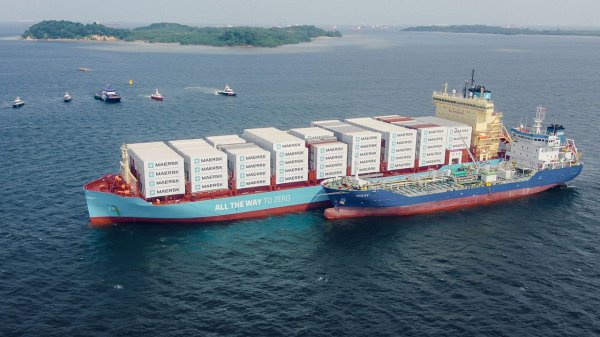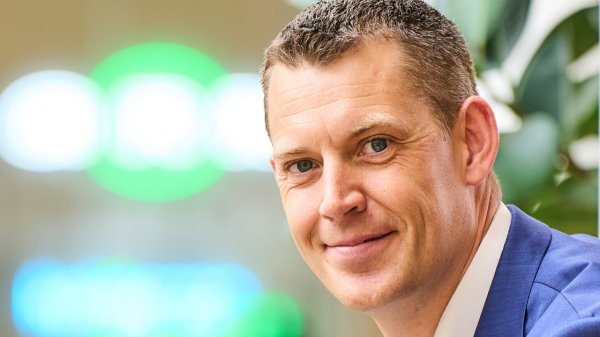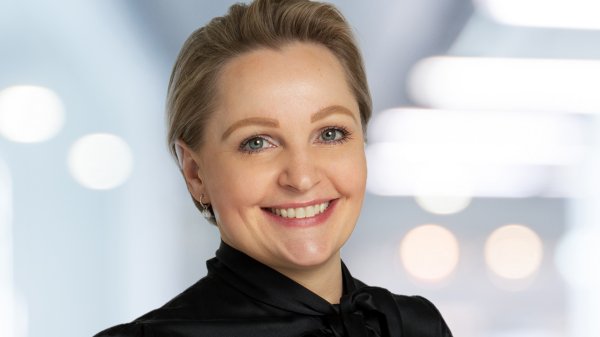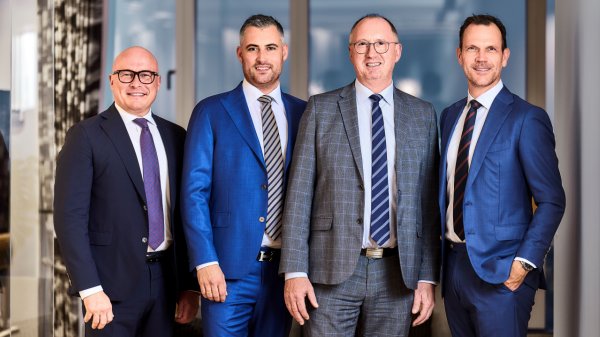Carnival posts $42m rise in Q3 bunker costs... but still manages $1.3bn profit
Ferry operator saw bunker expenses increase 15.8% in Q3, whilst the average price per tonne was up 12.8%.
US cruise operator Carnival Corporation & plc (Carnival) has recorded a rise in bunker costs in its financial results for the third fiscal quarter of 2017, which runs between June 1 and August 31.
Bunker fuel expenses rose from last year's figure of $265 million to $307 million, representing an increase of $42 million, or 15.8 percent.
For the first nine months of the company's fiscal year (between the start of December and end of August), Carnival saw bunker costs increase $266 million, or 41.0 percent, to $914 million, up from last year's figure of $648 million.
Bunker fuel consumption for the third quarter was 814,000 tonnes - 2.6 percent higher than the 793,000-tonne amount consumed during the prior-year period.
The ferry operator's vessels burned 2,463,000 tonnes during the first nine months of the year, compared to 2,417,000 tonnes in 2016.
The company paid an average of $378 per metric tonne (pmt) over the three-month period between June and August, compared to $335 pmt during the same quarter in 2016 - representing a rise of $43 pmt, or 12.8 percent.
Over the nine-month period between December and August, Carnival's average bunker cost was $371 pmt - a year-on-year (YoY) increase of $103, or 38.4 percent.
2017 forecast
Below is Carnival's fuel price and fuel consumption forecast for 2017.
Fourth-quarter 2017 forecast
Fuel price per metric tonne: $397
Fuel consumption (metric tonnes): 840,000
Full-year 2017 forecast
Fuel price per metric tonne: $378
Fuel consumption (metric tonnes): 3,305,000
Financial results
In its key results for the third fiscal quarter of 2017, Carnival posted a net income of $1,329 million - $95 million, or 6.7 percent, lower than last year's figure of $1,424 million. Net income for the first nine months was at $2,060 million compared to $2,171 in the prior-year period.
Revenue for the third quarter of 2017 was $5,515 million - $418 million, or 8.2 percent, higher than the $5,097 million achieved in 2016. Nine-month revenue rose to $13,251 million, compared to last year's $12,454 million result.
Commenting on the third quarter, Arnold Donald, Carnival Corporation & plc President and Chief Executive Officer, said: "We delivered another consecutive quarter of strong operational improvement and another third quarter adjusted earnings record. Our ongoing efforts to create demand well in excess of measured supply growth helped to drive five percent higher cruise ticket pricing."
Bunker fuel expenses rose from last year's figure of $265 million to $307 million, representing an increase of $42 million, or 15.8 percent.
For the first nine months of the company's fiscal year (between the start of December and end of August), Carnival saw bunker costs increase $266 million, or 41.0 percent, to $914 million, up from last year's figure of $648 million.
Bunker fuel consumption for the third quarter was 814,000 tonnes - 2.6 percent higher than the 793,000-tonne amount consumed during the prior-year period.
The ferry operator's vessels burned 2,463,000 tonnes during the first nine months of the year, compared to 2,417,000 tonnes in 2016.
The company paid an average of $378 per metric tonne (pmt) over the three-month period between June and August, compared to $335 pmt during the same quarter in 2016 - representing a rise of $43 pmt, or 12.8 percent.
Over the nine-month period between December and August, Carnival's average bunker cost was $371 pmt - a year-on-year (YoY) increase of $103, or 38.4 percent.
2017 forecast
Below is Carnival's fuel price and fuel consumption forecast for 2017.
Fourth-quarter 2017 forecast
Fuel price per metric tonne: $397
Fuel consumption (metric tonnes): 840,000
Full-year 2017 forecast
Fuel price per metric tonne: $378
Fuel consumption (metric tonnes): 3,305,000
Financial results
In its key results for the third fiscal quarter of 2017, Carnival posted a net income of $1,329 million - $95 million, or 6.7 percent, lower than last year's figure of $1,424 million. Net income for the first nine months was at $2,060 million compared to $2,171 in the prior-year period.
Revenue for the third quarter of 2017 was $5,515 million - $418 million, or 8.2 percent, higher than the $5,097 million achieved in 2016. Nine-month revenue rose to $13,251 million, compared to last year's $12,454 million result.
Commenting on the third quarter, Arnold Donald, Carnival Corporation & plc President and Chief Executive Officer, said: "We delivered another consecutive quarter of strong operational improvement and another third quarter adjusted earnings record. Our ongoing efforts to create demand well in excess of measured supply growth helped to drive five percent higher cruise ticket pricing."

|
How to engineer and manage green shipping fuels | Stanley George, VPS
Effective management strategies and insights for evolving fuel use. |
|
|
|
||

|
Swedish government bans scrubber wastewater discharges
Discharges from open-loop scrubbers to be prohibited in Swedish waters from July 2025. |
|
|
|
||

|
MAN Energy Solutions achieves 100% load milestone for ammonia engine
Latest tests validate fuel injection system throughout the entire load curve. |
|
|
|
||

|
Petrobras secures ISCC EU RED certification for B24 biofuel blend at Rio Grande
Blend consisting of 24% FAME is said to have been rigorously tested to meet international standards. |
|
|
|
||

|
Stolt-Nielsen to fully control Avenir LNG with acquisition
Share purchase agreement to buy all shares from Golar LNG and Aequitas. |
|
|
|
||

|
Bureau Veritas supports launch of CIMC SOE's LNG bunkering vessel
Handover of Seaspan Energy's cutting-edge 7,600-cbm vessel completed. |
|
|
|
||

|
Methanol as a marine fuel | Steve Bee, VPS
How environmental legislation has driven the development of low-sulphur fuels and methanol-ready ships. |
|
|
|
||

|
Martin Vorgod elevated to CEO of Global Risk Management
Vorgod, currently CCO at GRM, will officially step in as CEO on December 1, succeeding Peder Møller. |
|
|
|
||

|
Dorthe Bendtsen named interim CEO of KPI OceanConnect
Officer with background in operations and governance to steer firm through transition as it searches for permanent leadership. |
|
|
|
||

|
Bunker Holding revamps commercial department and management team
CCO departs; commercial activities divided into sales and operations. |
|
|
|
||
Related Links
- · Construction of Costa Cruises' first LNG-fuelled ship under way [Insights]
- · Keel-laying ceremony for world's first fully LNG-powered cruise ship [Insights]
- · Carnival hails progress made in bunker-related projects as sustainability report is released [Insights]
- · AIDA Cruises targets LNG bunkers in Barcelona for newest ship 'before the summer is out' [Insights]
- · Scrubbers installed on 60 Carnival ships [Insights]
- · United States [Directory]

